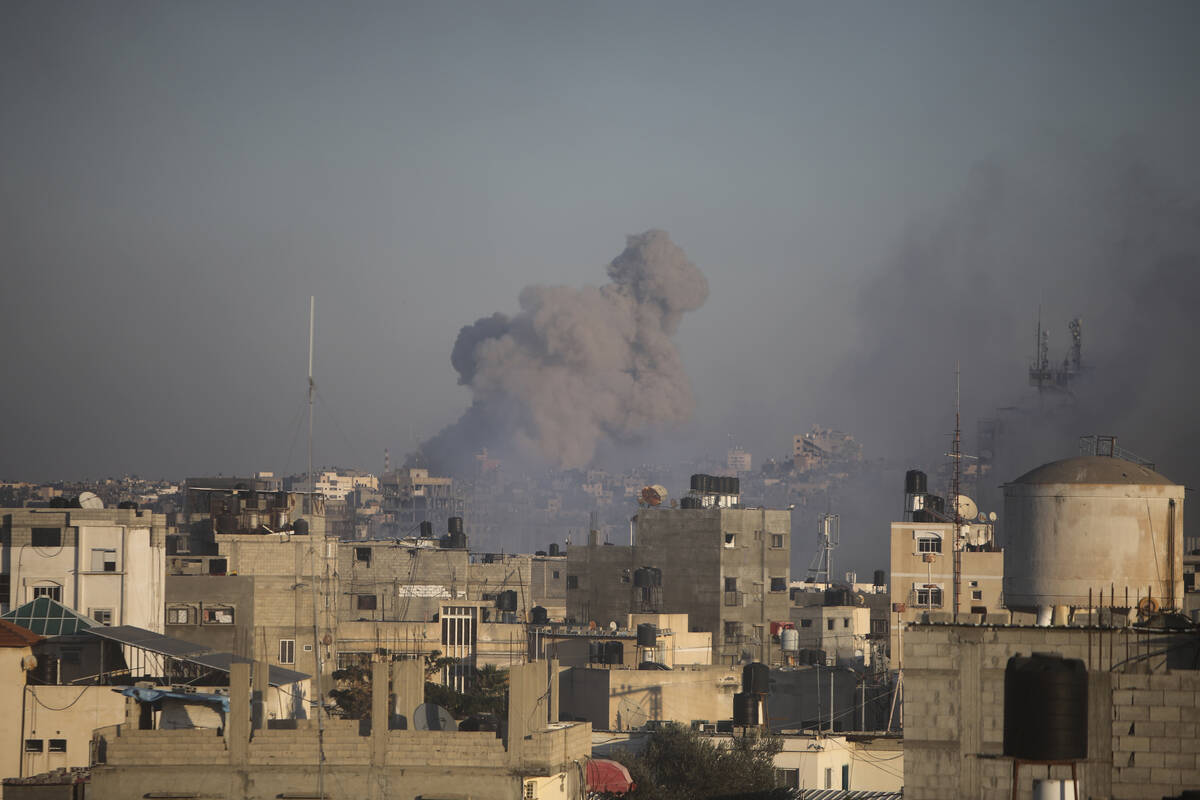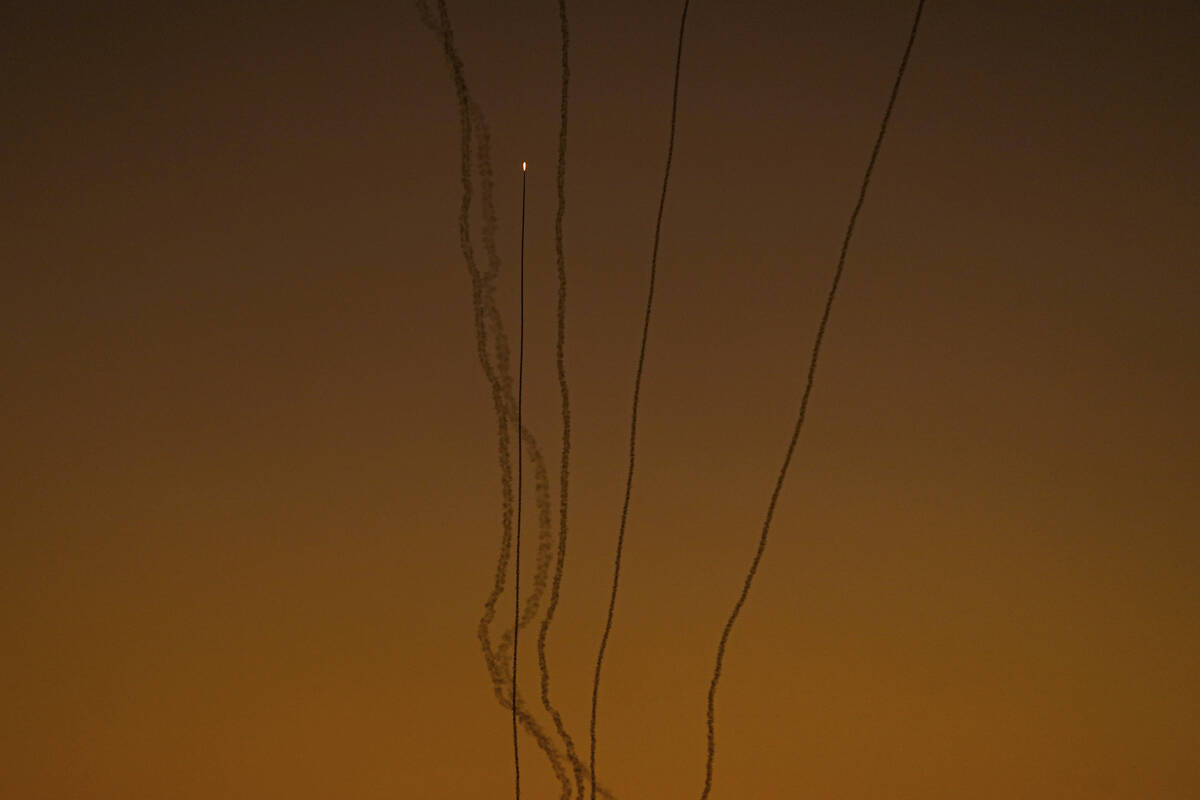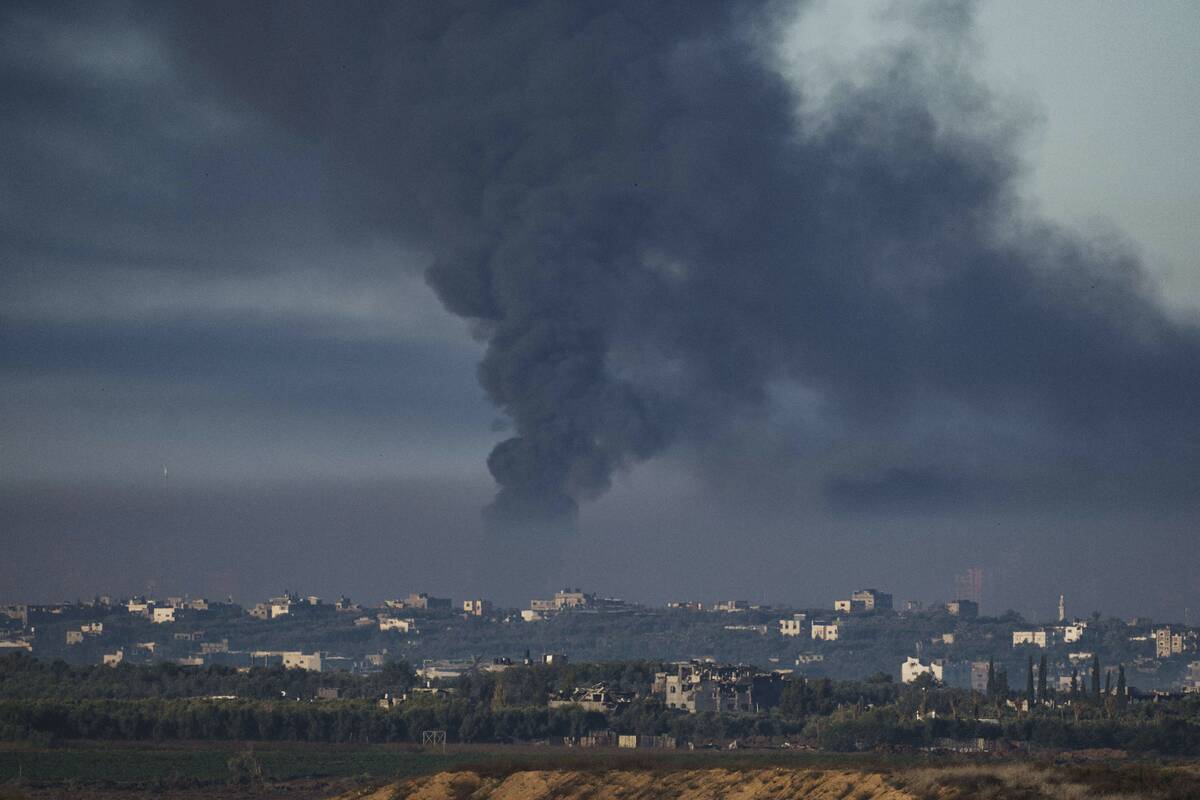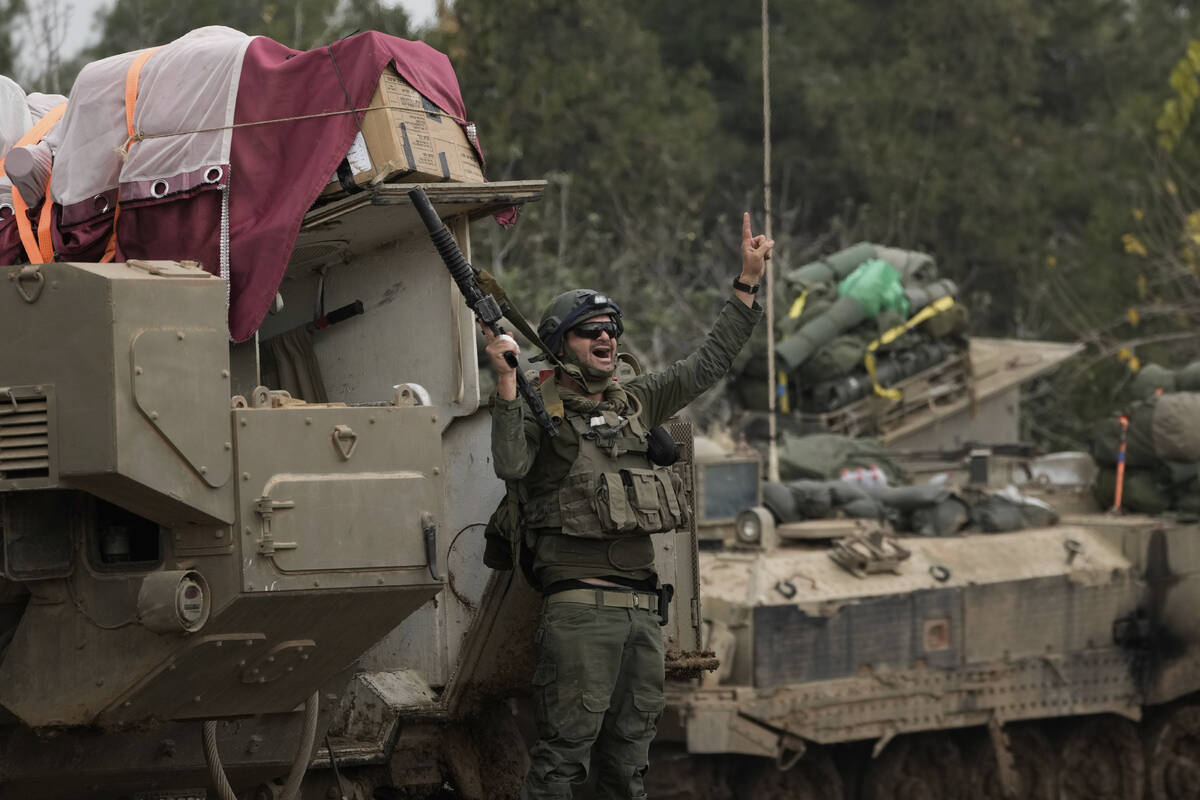Military says it mistakenly killed 3 hostages in Gaza
RAMALLAH, West Bank — The Israeli military on Friday mistakenly killed three Israeli hostages during its ground operation in the Gaza Strip, military officials said.
The army’s chief spokesman, Rear Adm. Daniel Hagari, said Israeli troops found the hostages and erroneously identified them as a threat.
The deaths occurred in the Gaza City area of Shijaiyah, where troops have engaged in fierce battles against Hamas terrorists in recent days.
He said it was believed that the three had either fled their captors or been abandoned.
“Perhaps in the last few days, or over the past day, we still don’t know all the details, they reached this area,” Hagari said. He said the army expressed “deep sorrow” and was investigating.
Hamas and other terrorists abducted more than 240 people in the Oct. 7 attack that triggered the war, and the hostages’ plight has dominated public discourse in Israel ever since.
Their families have led a powerful public campaign calling on the government to do more to bring them home.
Demonstrations in solidarity with the hostages and their families take place nearly every day. Late Friday, hundreds of protesters blocked Tel Aviv’s main highway in a spontaneous demonstration calling for the the hostages’ return.
Israeli political and military leaders often say freeing all the hostages is their top aim in the war alongside destroying Hamas.
Still, in seven weeks since ground troops pushed into northern Gaza, they have not rescued any hostages, though they freed one early in the conflict and have found the bodies of several others. Hamas released over 100 in swaps for Palestinian prisoners last month, and more than 130 are believed to still be in captivity.
The three hostages were identified as young men who had been abducted from Israeli communities near the Gaza border — Yotam Haim, 28, Samer Al-Talalka 25, and Alon Shamriz, 26.
Israeli Prime Minister Benjamin Netanyahu called their deaths an “unbearable tragedy” and vowed to continue “with a supreme effort to return all the hostages home safely.”
Israelis committed to war
Israelis remain strongly supportive of the war and see it as necessary to prevent a repeat of the Hamas attack, in which terrorists killed around 1,200 people, mostly civilians. A total of 116 soldiers have been killed in the ground offensive, which began Oct. 27.
President Joe Biden’s administration has expressed unease over Israel’s failure to reduce civilian casualties and its plans for the future of Gaza, but the White House continues to offer wholehearted support with weapons shipments and diplomatic backing.
While battered by the Israeli onslaught, Hamas has continued its attacks. On Friday, it fired rockets from Gaza toward central Israel, setting off sirens in Jerusalem for the first time in weeks but causing no injuries.
Israeli government spokesman Eylon Levy said terrorists have fired 12,500 rockets since Oct. 7, including more than 2,000 that fell short and landed in Gaza.
Israel’s air and ground assault over the past 10 weeks has killed more than 18,700 Palestinians, according to the Health Ministry in Hamas-run Gaza. The ministry does not differentiate between civilian and combatant deaths.
Israeli airstrikes and tank shelling continued Friday, including in Khan Younis and in Rafah in southern Gaza. Details on many of the strikes could not be confirmed because communications services have been down across Gaza since late Thursday because of fighting.
In meetings with Israeli leaders on Thursday and Friday, U.S. national security adviser Jake Sullivan discussed a timetable for winding down the intense combat phase of the war.
Israeli Defense Minister Yoav Gallant told Sullivan that it would take months to destroy Hamas, but he did not say whether his estimate referred to the current phase of heavy airstrikes and ground battles.
“There is no contradiction between saying the fight is going to take months and also saying that different phases will take place at different times over those months, including the transition from the high-intensity operations to more targeted operations,” Sullivan said Friday.
Postwar plans discussed
Sullivan also met with Palestinian President Mahmoud Abbas to discuss Gaza’s postwar future. A senior U.S. official said one idea being floated is to bring back Palestinian security forces driven from their jobs in Gaza by Hamas in its 2007 takeover.
Any role for Palestinian security forces in Gaza is bound to elicit strong opposition from Israel, which seeks to maintain an open-ended security presence there. Netanyahu has said he will not allow a postwar foothold for the Abbas-led Palestinian Authority, which administers parts of the West Bank.
The U.S. has said it eventually wants to see the West Bank and Gaza under a “revitalized Palestinian Authority” as a precursor to a Palestinian state — an idea soundly rejected by Netanyahu.
Palestinian officials have said they will consider a postwar role in Gaza only in the context of concrete U.S.-backed steps toward statehood.
In the meeting, Abbas called for an immediate cease-fire and ramped-up aid to Gaza, and emphasized that Gaza is an integral part of the Palestinian state, according to a statement from his office. It made no mention of conversations about postwar scenarios.
The 88-year-old Abbas is deeply unpopular, with a poll published Wednesday indicating close to 90 percent of Palestinians want him to resign.
Meanwhile, Palestinian support for Hamas has tripled in the West Bank, with a small uptick in Gaza, according to the poll. Still, a majority of Palestinians do not back Hamas, according to the survey.
———
Jeffery reported from Cairo and Frankel from Jerusalem. Associated Press journalists Aamer Madhani in Washington, Elena Becatoros in Athens and Edith M. Lederer at the United Nations contributed.

























